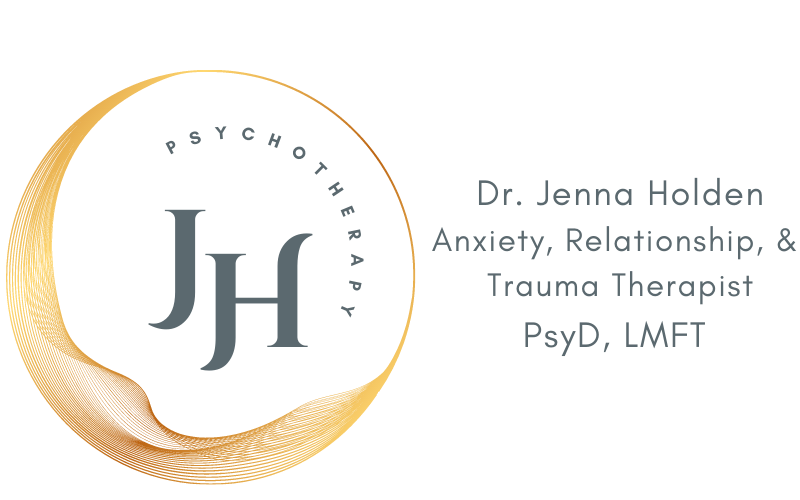
BASED IN NEWPORT BEACH, SERVING ALL OF CALIFORNIA
EMDR Therapy Online
for trauma and limiting beliefs
Accelerated healing for our deepest points of pain
When we’re living in pain, fear, and anxiety: time is of the essence.

What is EMDR?
EMDR (Eye Movement Desensitization and Reprocessing) is a trauma-based method that uses bilateral stimulation of the brain through eye-movements, sounds, or tapping. It is best known for the relief it offers in the treatment PTSD, but many studies show its ability to heal beyond trauma to help a myriad of other issues—in shorter treatment times than many other first-line therapies. EMDR works on a neurological level to relieve negative emotional and physical reactions associated with common experiences such as:
painful life events
distressing memories
performance anxiety
blocking beliefs
emotional regulation
public speaking
attachment wounds
overcoming infidelity
social anxiety
grief
panic attacks
fear of flying
self-confidence, anxiety
negative childhood experiences
and much more
EMDR’s potential to reduce negative sensations and install positive resources is endless.
EMDR works on a 3-prong approach:
Identify past “targets” that set the foundation for emotional and physical distress
Address present triggers and reactions that aren’t working for you now
Plan for future events and set up internal resources to handle them the way you want

EMDR can help you:
Safely process acute trauma and significant life events
Change the patterns that have kept you stuck
Change your core beliefs to improve self-esteem
Alleviate distressing body sensations
Improve your brain’s physiological composition for visceral results
Enhance your performance, relationships, and outlook on life
Frequently asked questions about EMDR
-
EMDR allows you to explore memories, life events, anxieties, fears, or concerns that have been improperly stored in the brain, and are now causing present discomfort. EMDR uses bilateral stimulation (BLS) of the brain to reprocess the broken pieces of these distressing thoughts, feelings, images, and body sensations in order to move forward.
BLS is thought to mimic what happens in slow-wave-sleep, calming the amygdala and allowing it to synchronize with the rest of the brain. Studies of brain scans have shown that EMDR can increase grey matter density in the brain, which was associated with reduction or elimination of symptoms directly after treatment that were maintained at follow-up. Basically, EMDR not only changes the way you think and feel, it changes your brain for the better.
-
EMDR has a “3-prong approach” (past, present future) and follows an 8-phase protocol. There will be some history taking and assessment before the the “reprocessing” begins, but as a whole, it can be an accelerated form of treatment compared to other methodologies. The reprocessing segment asks the client to focus on a specific event. Attention will be given to a negative image, belief, and body sensation related to this event, and later shifting to a positive belief that would be more adaptive. While the client focuses on the upsetting event, the therapist will begin sets of bilateral stimulation (BLS), including tapping, eye-movements, or sounds.
Because my EMDR sessions are held via video-conferencing, the most common form of BLS used is the client tapping themselves lightly with their hands (either on the tops of their thighs or with the "butterfly hug") or following my fingers on the screen with eye movements. The client will be guided to notice what comes to mind after each set. They may experience shifts in insight or changes in images, feelings, or beliefs regarding the event. The client has full control to stop the therapist at any point, if needed. The sets of eye movements, sounds, or taps are repeated until the event becomes less disturbing.
This can also be applied to many other problems besides trauma, such as challenging limiting beliefs, decreasing anxiety, and more.
-
Some people report feeling tired, or like they just woke up from a nap after an EMDR session. This is normal. It’s a good idea to plan for self-care before and after your sessions: drink plenty of water, if possible, plan for some down time after session or a more relaxing day that day.
We do “close” the session by leaving time at the end to come back to a place of calm so you are able to feel emotionally and physically regulated before session is over.
Some also report more vivid or intense dreams after EMDR. This is common and the brain’s way of working through materials both of and on different levels of consciousness.
You may remember things you hadn’t before, and some of these things might be upsetting. I will give you a resource to contain these things until we can unpack them together and properly address them in our next session.
That being said, sometimes the warning of “you may feel worse before you feel better” is true—in all forms of therapy. Bringing painful parts of us to the surface can result in emotional and physical discomfort. It’s important to bring these topics up with me so we can address them together.
-
EMDR is extremely powerful for people who are motivated to change and committed to the process. While EMDR is accelerated, it is not a “quick fix.” Missing sessions, checking in and out, or going in half-heartedly might not yield the incredible benefits EMDR can offer.
EMDR can be extremely helpful if you are already in weekly therapy but need to address trauma memories in order to gain better results. This dual approach can be with me, or if you are working with another therapist you are connected to, great! I am happy to coordinate care with that person if you wish, and/or we can solely focus on the trauma work while you receive your weekly support with your regular therapist. Note: I cannot do talk therapy if you are already working with another talk therapist for ethical reasons.
EMDR can treat an array of different concerns, however not everyone is an ideal candidate. If you have a history of dissociation or dissociative disorders, EMDR may not be suitable. EMDR is also contraindicated for individuals in active addiction or substance use disorder. EMDR may also not be effective or safe if someone is currently living in an unsafe, unstable, and chronically high stress environment. EMDR can touch on some painful memories and laying the foundation for emotional stability is key before exploring these events.
-
This depends on the goals and targets that are revealed as we go through the process. I have had clients with single-incident traumas or specific fears (such as public speaking) complete treatment in very few sessions. When someone has complex trauma, chronic anxiety, prolonged exposure to stress, comorbid diagnoses, etc., it can take a bit longer to work through. That being said, EMDR can start the healing process more rapidly to deliver expedited relief, even if there are many targets to work through. Most see improvements within 1-3 sessions, regardless of their presenting problem. While I can’t give a specific number of sessions to complete treatment, I’m happy to talk about your specific needs in our free 15-minute consultation.
-
In EMDR we call them blocking beliefs. These are negative core beliefs that keep a person feeling stuck. Often times it sounds like, “I want to believe I’m good enough or capable, but I just can’t fully get there, and I don’t know why.” We will work together to uncover the underlying blocking belief that stands in the way of healing and progress. We can then reprocess the experiences that created that belief so you can fully move forward with confidence.
-
EMDR is a great tool to prepare for an upcoming event that is causing you to feel fearful or anxious, or maybe something that you just want to exude confidence for. One of the most common events, and the reason I became a client for EMDR myself… WEDDINGS! Whether you are getting married, or have to give a speech, or are feeling generally overwhelmed for something important coming up, EMDR can help remove blocking beliefs and build resources to feel calm and confident so you can leave the anxiety behind, and be present for life’s biggest moments.
Sometimes time is limited before an event, so an EMDR intensive could be a great option to move through this process more quickly. Limited by availability: I currently do not have openings for intensives, but please check back soon!
